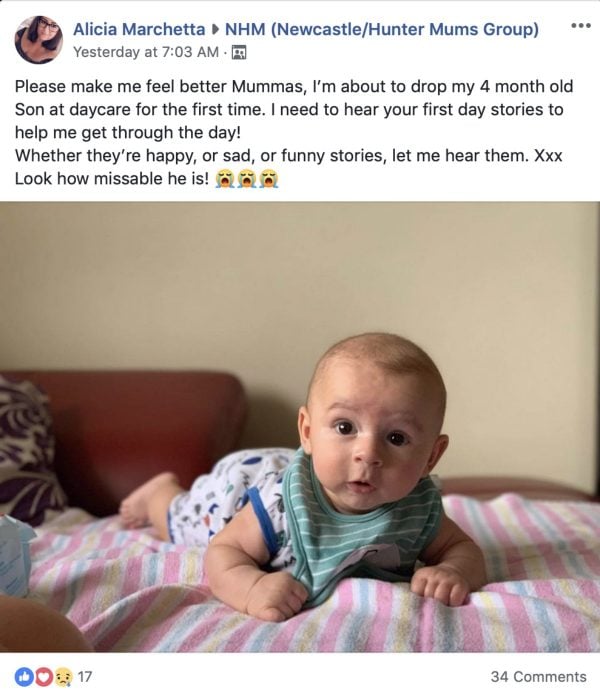
Almost one year ago to the day, my then 11-month-old son Leo started at family daycare so I could return to work. I remember those first drop-offs as highly emotional times that involved a lot of tears; from Leo as he became more aware that I was leaving him, and me as I felt all kinds of guilt and worry about whether he would be okay.
Fast forward to January 2019 and while Leo occasionally still gets upset after holidays or sick days, he is very happy to play and learn with his little friends every week. I certainly don’t worry anymore, and there is zero chance of tears from me as I whizz off to grab a coffee before going to work in peace.
The challenging experience of those initial daycare drop-offs stayed with me, so I spoke to new-to-daycare mum Alicia Marchetta, as well as two experienced childcare educators for their six top daycare-related tips:
1. Introduce them slowly.
Starting any type of daycare will be a big change to your routine and Jessica Woodford, an educator with Jellybeans Family Daycare, advises that it is best to start slowly.
“I always recommend parents have some stay-and-play time with their child in the environment before the big day. Becoming familiar gradually with the new place and the people, helps the child and parents feel more comfortable prior to the first official drop-off.”
Alicia Marchetta, mum to baby Ace, decided to start him at daycare the week before she returned to work, to help them both feel more relaxed with the new arrangement.

